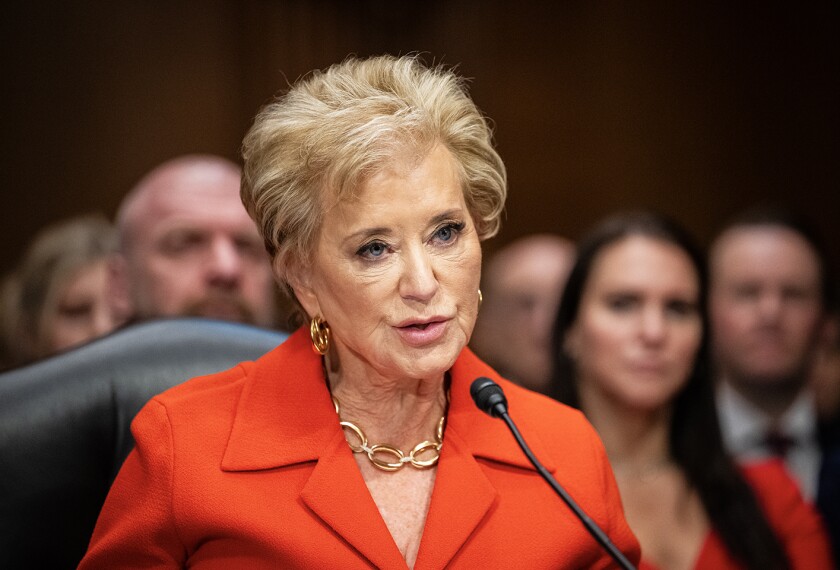The House gave overwhelming bipartisan approval to its version of a long-stalled measure reauthorizing the Higher Education Act.
The bill, approved 354-58 on Feb. 7, seeks to shine a spotlight on college-tuition increases, direct funds for colleges of teacher education toward bolstering field experiences, and require lenders to provide detailed information on loan terms to student borrowers.
The HEA was last renewed in 1998, and its reauthorization has been pending since 2003. The law governs a broad swath of higher education programs, including those covering teacher training. In July, the Senate passed its own bill to reauthorize the law.
During floor debate Feb. 7, Rep. Howard P. “Buck” McKeon of California, the top Republican on the House Education and Labor Committee, praised the bill but expressed concerns about language aimed at providing greater transparency for student borrowers by requiring lenders to more explicitly state the terms of their loans.
Lenders would have to specify the potential range of interest rates on a prospective loan, and provide students with an estimate of what their monthly payments would be, among other information. Rep. McKeon said the amount of information that borrowers may receive from lenders under the measure could be overwhelming and “may undermine the consumer protection we’re actually trying to achieve.”
The White House released a statement Feb. 6 opposing the House legislation. The statement did not contain a veto threat, but it criticized language in the bill that would permit TRIO program applicants whose funding requests were rejected to appeal that decision to the Department of Education. TRIO programs support low-income and first generation college-going students.
Like the Senate bill, the House measure would combine three grant programs for colleges of teacher education into a single funding stream aimed at helping higher education institutions partner with high-need school districts to create “teacher residency” programs, in which students seeking master’s degrees in education could work alongside a mentor teacher while taking courses.
The money could also be used to provide mentors and to develop “induction” programs to aid new teachers during their first years on the job.
Money for those programs would come out of the Teacher Quality Enhancement grants, which were financed at $33.7 million this year. President Bush has proposed eliminating the program in his 2009 budget request. (“In Budget Debate, Democrats Poised to Try to Wait Out President Bush,” Feb. 13, 2008.)
Rep. John Yarmuth, D-Ky., offered an amendment that would create “Teach to Reach” grants, which could be used to support partnerships between teachers’ colleges and high-need districts to help general education teachers work with students in special education placed in their classrooms. The House approved the amendment by voice vote.
College Costs
To encourage colleges to rein in tuition, the measure would require the secretary of education to publish three “transparency” lists, citing the nation’s top 5 percent most-expensive institutions, the 5 percent least-expensive institutions, and the colleges with the steepest tuition increases by percentage over the previous three years. Lists would group institutions by sector, with four-year private colleges grouped separately from two-year public colleges, for example.
Colleges and universities that had the largest percentage increases would have to report to the secretary on the reasons for the hikes, establish a “quality efficiency task force” to examine the college’s costs compared with similar institutions’, and make recommendations for containing costs.
The bill also contains language that would penalize states for reducing higher education spending. States that cut such appropriations could lose federal matching funds that help finance scholarships for low-income students.
The National Conference of State Legislatures and the National Governors Association vehemently oppose the provision.
“State legislators keenly understand balanced budgets and making difficult choices among numerous competing priorities,” NCSL Executive Director William T. Pound said in a statement. “They do not need federal ‘guidance’ on how to do this, especially given Washington, D.C.’s penchant for debt accumulation and unbalanced budgets.”





